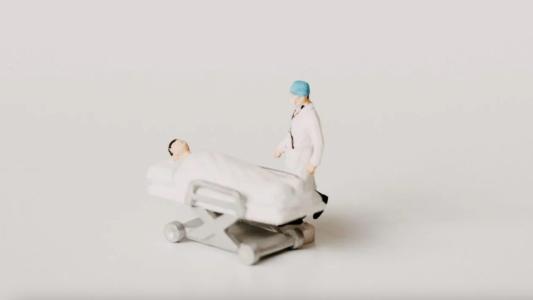The current record for longest life is likely to be broken in the coming decades, according to a new study that found we’ve yet to reach the maximum human lifespan — if one even exists.
The question: The average human life expectancy has been rising in most countries for decades, thanks to better healthcare, hygiene, and diets, but the maximum human lifespan hasn’t changed since 1997, when France’s Jeanne Calment (born in 1875) died at the age of 122.
This has led some to speculate that perhaps there’s a set limit on how long people can live — the average lifespan might continue to trend toward this maximum age, but no matter how many advances we see as a society, people just aren’t going to survive beyond it.
“If there is a maximum limit to the human lifespan, we are not yet approaching it.”
David McCarthy and Po-Lin Wang
What’s new? While much of the research on the maximum human lifespan has focused on biology, a new study, published in PLOS One, approached the topic from the perspective of statistics — and reached a heartening conclusion for anyone hoping to live a long life.
“Our results confirm prior work suggesting that if there is a maximum limit to the human lifespan, we are not yet approaching it,” write authors David McCarthy and Po-Lin Wang from the University of Georgia and the University of South Florida, respectively.
The approach: For their study, the authors analyzed mortality records from the US and 18 other industrialized nations, looking at people with a shared birth year.
They noticed that, while the dominant pattern throughout history is the average age at death skewing higher, there are also periods when the maximum age appears to jump up, a phenomenon dubbed “mortality postponement.”
They noticed one example of this in women born between 1855 and 1875, and they see signs of it happening in groups born between 1900 and 1950, too. We just haven’t seen any of those people break the maximum human lifespan record yet because most of them are still too young.
“This depends on whether … there is a stable economic, political, and environmental environment that continues to support extreme longevity.”
David McCarthy
One group in particular seems to be at the forefront of the phenomenon, according to the researchers’ analysis.
“The model suggests that the oldest Japanese woman born in 1940 has a 50% chance of living past 130,” McCarthy told ZME Science.
“Of course, this depends on whether our model is an accurate description of how old-age morality will change, and whether there is a stable economic, political, and environmental environment that continues to support extreme longevity,” he continued.
The big picture: While the idea of there being no maximum human lifespan is exciting — for one thing, it means immortality isn’t theoretically off the table — it also means a situation we’re already grappling with, the world’s aging population, could get much more pronounced in the future.
This just emphasizes the importance of figuring out now how we’re going to take care of this growing group of seniors in their twilight years, perhaps with wearable tech, advanced home robots, and autonomous food deliveries being part of the solution.
We’d love to hear from you! If you have a comment about this article or if you have a tip for a future Freethink story, please email us at tips@freethink.com.






